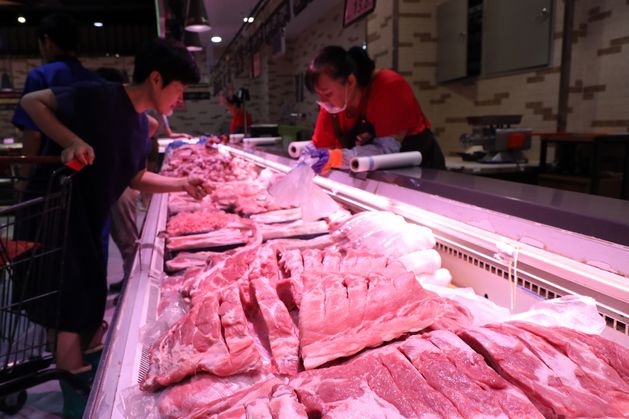The Asian nation will impose preliminary levies ranging from 15.6% to 62.4% on cargoes of the meat, China’s Ministry of Commerce said in a statement on its website. The government accused European companies of dumping certain pork and pig byproducts and said its domestic industry has “suffered material injury.”
Major pork exporters Danish Crown A/S and some units of Vion Food Group face rates of 31.3% and 32.7% respectively, according to the ruling. It will be paid as a deposit until the duties are finalized. Numerous other companies were also issued a specific rate and the 62.4% levies will be imposed on other exporters not listed, it said.
A spokesperson for Danish Crown did not immediately comment. Vion declined to comment.
The measures come as China struggles with a domestic oversupply of pork and sluggish consumption amid a sustained economic downturn. Still, the hefty duties risk another blow to beleaguered hog farmers in Europe who are contending with slowing demand and the fallout from disease outbreaks.
The tariffs are unlikely to result in price hikes for consumers China and will instead dent the profitability for European pork product producers, said Rupert Claxton, meat and livestock director for consultant Gira.
Beijing started an anti-dumping probe into shipments from the bloc last year, which was extended in June, as part of countermeasures to the EU’s investigations into Chinese subsidies across a range of areas. The EU last October voted to impose tariffs as high as 45% on electric vehicles from China.
The European Commission is studying China’s decision to impose temporary duties on EU pork imports, spokesperson Olof Gill told reporters in a daily press briefing in Brussels.
“According to the Commission’s assessment, this investigation was based on questionable allegations and insufficient evidence, and thus was not in line with WTO rules for initiating an investigation,” said Gill. “We will take all necessary steps to defend our producers and industry.”
Tensions between China and the EU flared up earlier this week after the bloc’s foreign policy chief, Kaja Kallas, criticized the optics surrounding a military parade in Beijing, to which North Korea’s Kim Jong Un and Russia’s Vladimir Putin had been invited. Chinese Foreign Ministry spokesman Guo Jiakun slammed the remarks as “preposterous and irresponsible.”
China also remains entangled in trade disputes with other major agriculture trading partners from the US to Canada. Beijing said on Friday it will extend an ongoing anti-dumping probe into rapeseed shipments from Canada, where the crop is also know as canola, until March 2026 “given the complexity of the case.” China had already decided to impose preliminary duties of 75.8% on Canadian canola in August.
Bloomberg.

